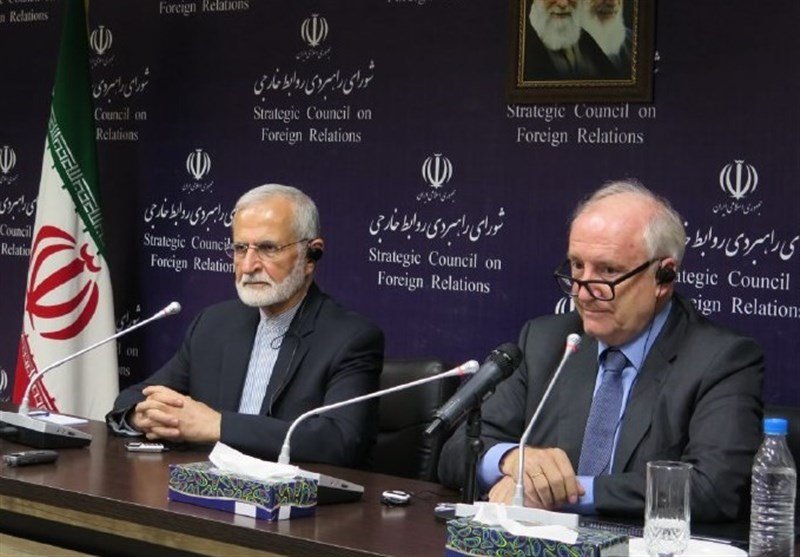Guarding nuclear deal a litmus test for EU, Iran's Kharrazi says

TEHRAN – The nuclear deal is a litmus test for the European Union to show its real stance toward the U.S., the head of Iran’s Strategic Council on Foreign Relations said on Tuesday.
Kamal Kharrazi made the remarks on Monday in a meeting of the council with former French foreign minister Ubert Vedrine as guest of honor.
However, Kharrazi said, “European countries’ stance has been clear so far in supporting the nuclear deal.”
The nuclear deal, officially called the Joint Comprehensive Plan of Action (JCPOA), was signed in July 2015 between Iran, the European Union, France, Germany, Britain, the U.S., Russia and China. The deal went into effect early 2016. However, there are strong indications that new U.S. President Donald Trump intends to withdraw his country from the agreement.
On a question whether Iran will remain loyal to the JCPOA, even after a U.S. withdrawal, he said it depends on other parties' stances.
Kharrazi also expressed dismay over French stance on the launch of the Simorq satellite carrier by Iran on July 27, saying it was not capable of carrying nuclear warheads.
France’s decision to sign the statement against the launch of the satellite carrier raised a question in Iranians’ mind since it was not contrary to the United Nations Security Council Resolution 2231 which endorsed the nuclear deal, he added.
He also criticized France for hosting the terrorist People's Mujahedin of Iran (MEK) that has killed 13,000 Iranians.
Kharrazi went on to say that Iran is a stable and influential country in the region and it would be good for France to establish better relation with Tehran.
The former foreign minister also said, “Iran and Europe are developing relations, and Iran has expressed its readiness in promoting stability in the region.”
“Iran has indicated its peace-making role by supporting Syrian and Iraqi governments (in fight against Daesh),” he added.
‘Iran nuclear deal to benefit all parties’
Vedrine also said the implementation of the nuclear deal has offered a strategic moment for all to benefit from, expressing satisfaction over the conditions created after the nuclear deal.
A new chapter has been opened in Iran’s foreign relations, he said. “However the main problem is the United States.”
“Many strong circles tried to disrupt the nuclear talks and its implementation at any price. Today U.S. President Donald Trump is also against the JCPOA, and he remains to be unpredictable.”
Iran will benefit from implementation of the nuclear agreement and the country has stayed committed to it, Vedrine said.
The International Atomic Energy Agency (IAEA) has repeatedly announced that Iran is committed to the nuclear deal, he said.
The former top French diplomat also said Iran's approach toward regional issues, its relations with Arab countries and its stance toward Yemen, Syria, Iraq, Afghanistan, Turkey, and Russia are important for Paris.
SP/PA
Leave a Comment